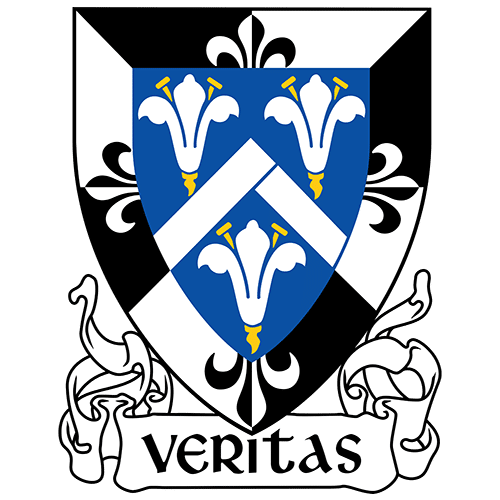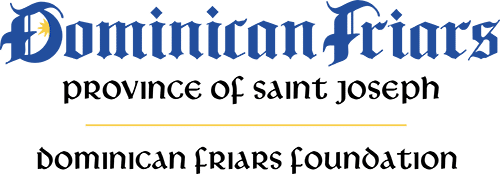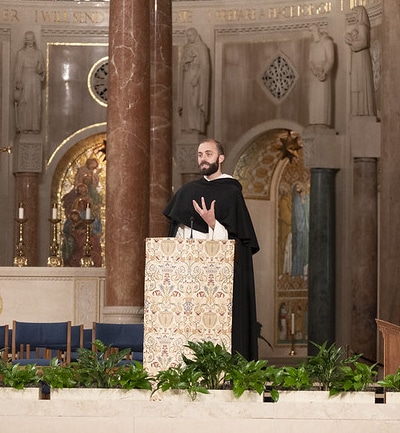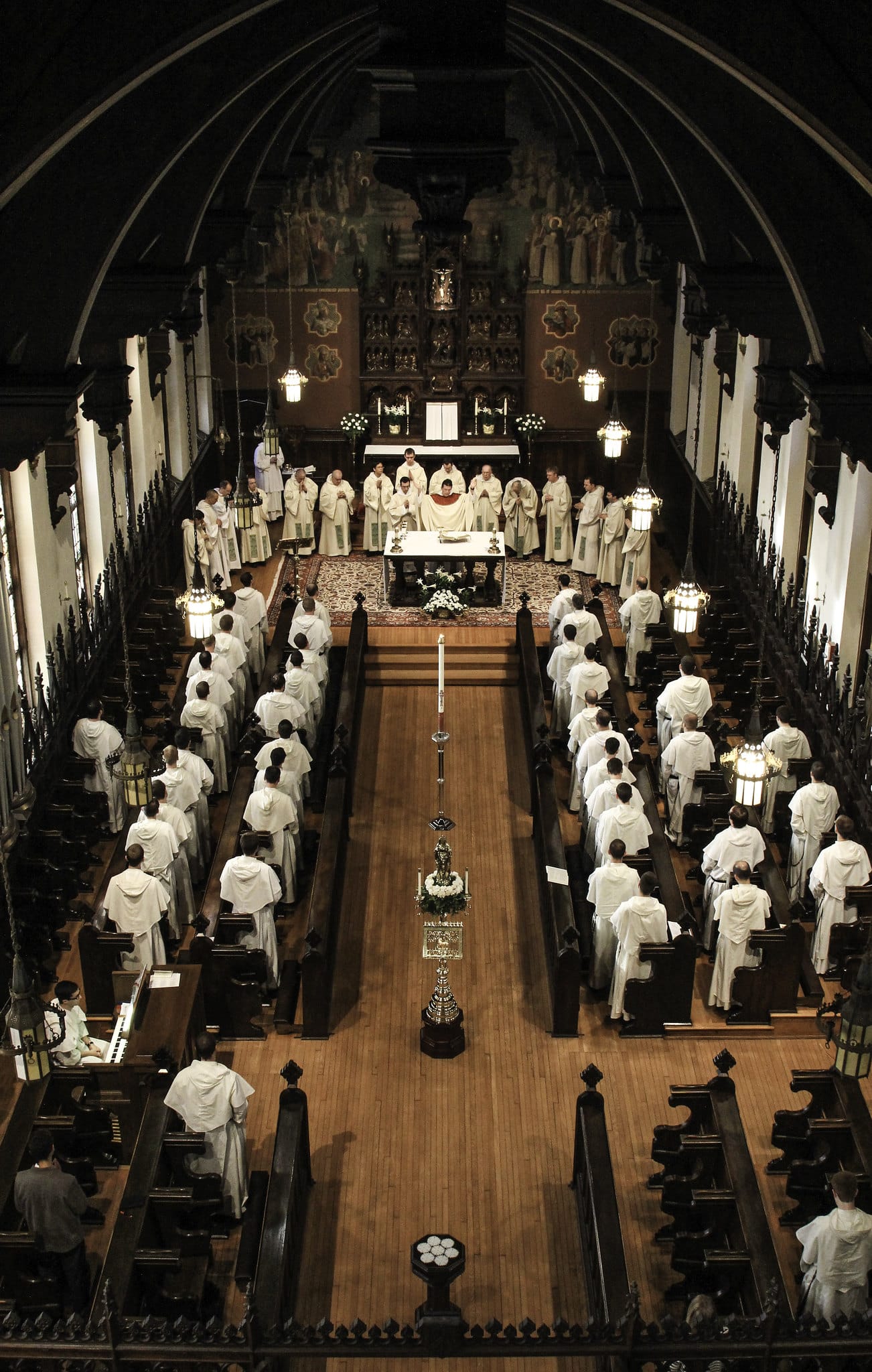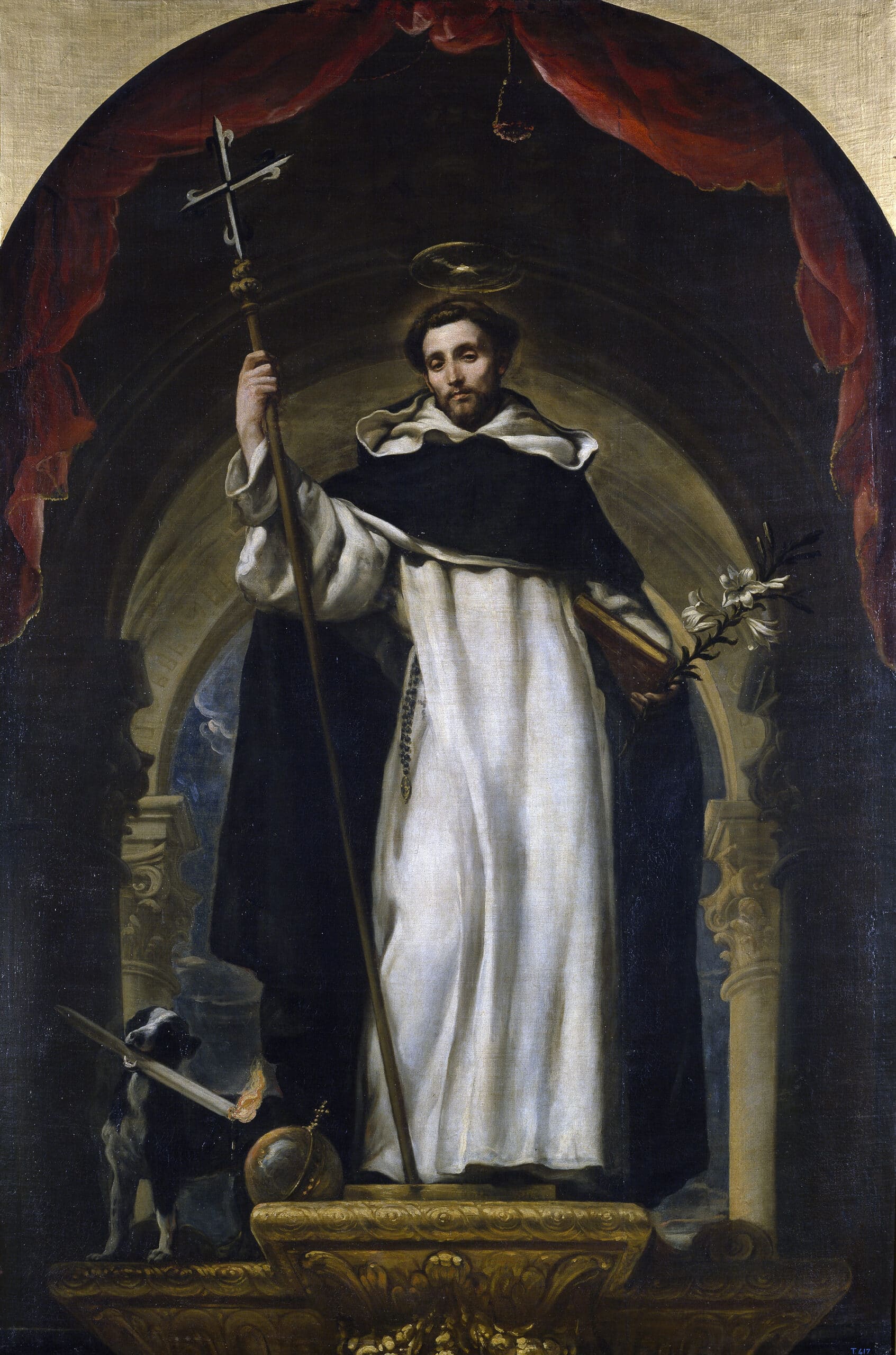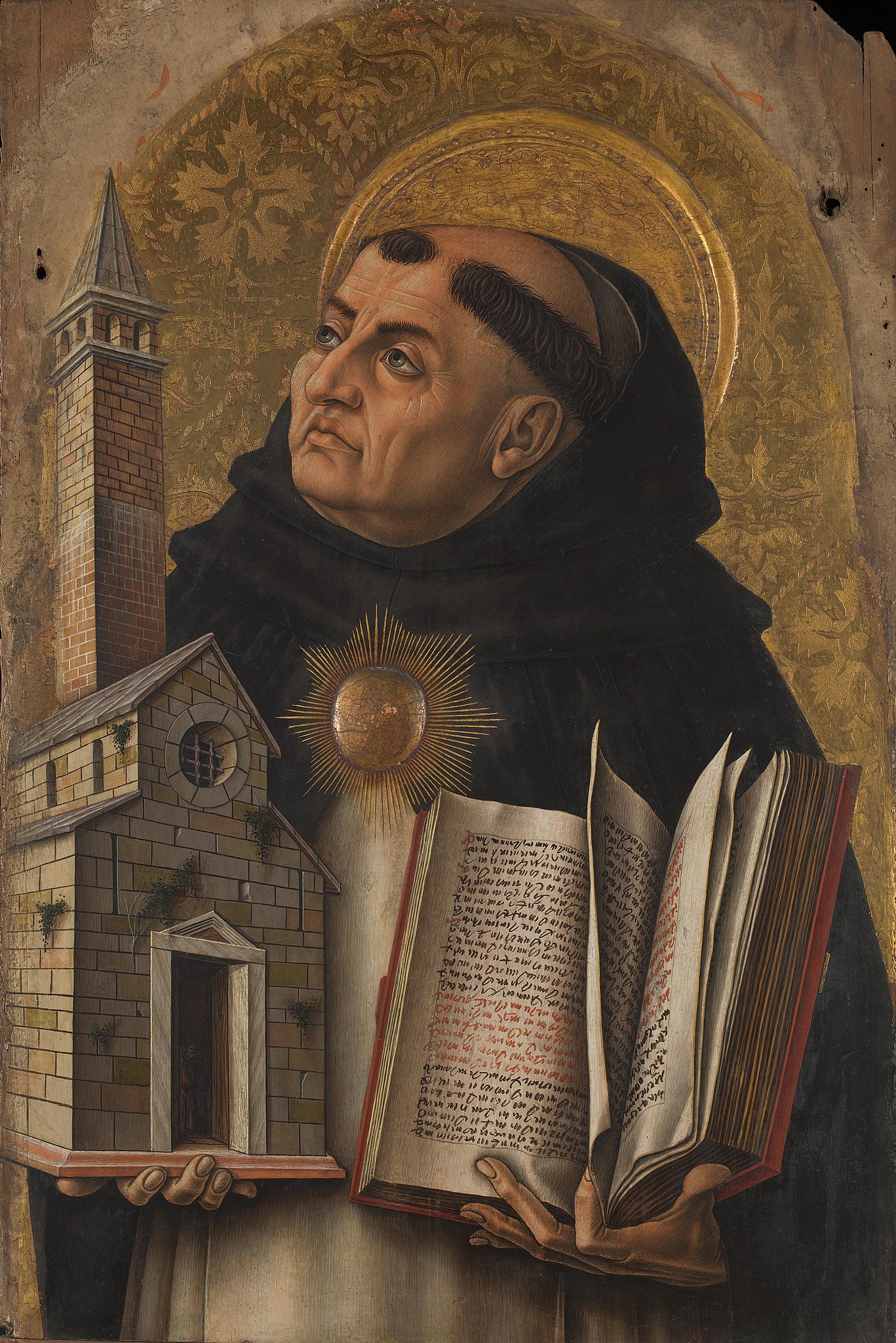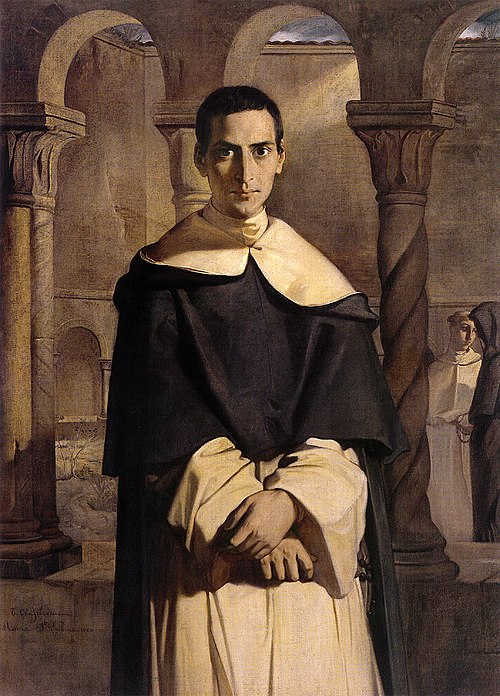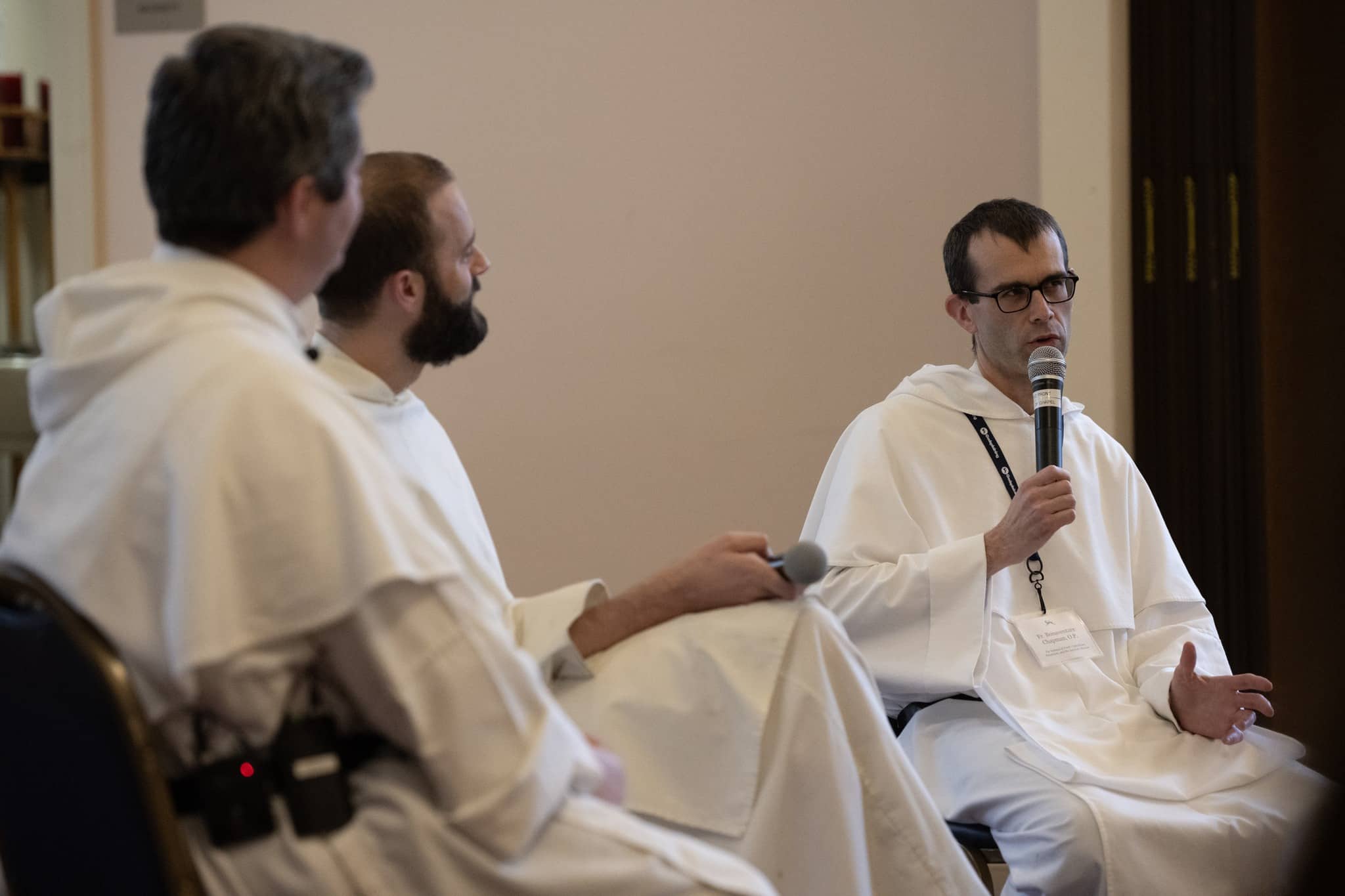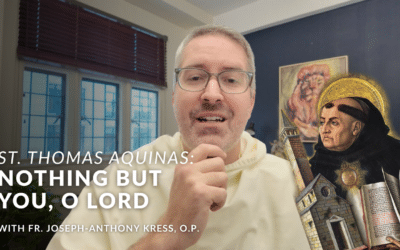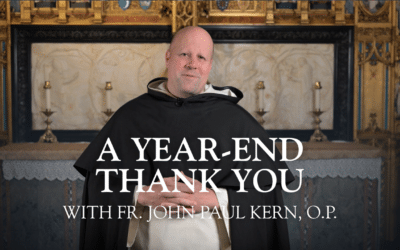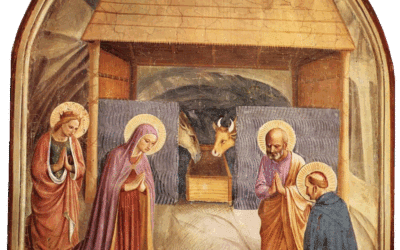Our Order
Order of Preachers
The Order of Preachers was founded by St. Dominic in the early 13th century for preaching and the salvation of souls. The spread of the dualist heresy of Albigensianism in southern Europe and increasing skepticism about the compatibility of faith and reason in the universities contributed to a pervasive atmosphere of confusion. God raised up St. Dominic and his preaching friars to shine the light of truth to illuminate the minds and enkindle the hearts of the men and women of his day by clearly preaching and teaching the fullness of the Gospel.
In the following centuries the Order of Preachers spread throughout the world and the Dominican friars continue “to praise, to bless, and to preach.” In accordance with the motto of the Order, “Veritas,” Dominicans are both a solid source of theological stability “in the heart of the Church,” and energetic missionaries burning with zeal for the salvation of souls.
The Charism of Preaching
Dominican friars are men consecrated to the word of God through their solemn profession of religious vows. At the time of St. Dominic, it was common for bishops but not for priests to engage in doctrinal preaching. The Order of Preachers was founded to be an order of friars who were priests especially learned and trained in preaching to assist the bishops with their ministry of preaching. Pope Honorius III gave the early “friars preachers” the unique prerogative of having the right to preach anywhere in the world.
The powerful Dominican charism of preaching for the salvation of souls extends beyond liturgical preaching to include teaching, writing, and diverse forms of evangelization. Dominicans seek any and every pulpit from which to proclaim the saving truth of Jesus Christ. Like St. Paul, every Dominican feels an urge to make Christ known and loved; “Woe to me if I do not preach the Gospel!” (1 Cor 9:16).

Dominican Life
Dominican life is structured around four pillars—prayer, study, community life, and preaching. The preaching of a Dominican friar is formed and nourished by his way of life. Personal and liturgical prayer, assiduous study of sacred truth, and living a fraternal life in community with his brothers all overflow into the apostolic preaching of the Dominican friar. In the early Constitutions of the Order of Preachers each Dominican community is referred to as a “holy preaching.”

Growth of the Dominican Order
From the time of St. Dominic, the preaching of the Dominican friars was greatly aided by the fervent prayers of the cloistered Dominican nuns. In the following centuries, new modes of life have developed that share in the Dominican charism, including congregations of active Dominican sisters and the Lay and Clerical Fraternities of St. Dominic (sometimes known as the “Third Order”).
Throughout its history, the Order of Preachers has been blessed with men and women of great sanctity and wisdom—and in many cases by individuals marked with both qualities! In the thirteenth century, friars such as St. Albert the Great, St. Thomas Aquinas, St. Raymond of Penyafort, Bl. James of Voragine, Hugh of St. Cher and Vincent of Beauvais transformed the intellectual culture of their time, initiating intellectual traditions in areas as diverse as theology, philosophy, law, hagiography, and the natural sciences that have continued to bear fruit for centuries.
In the late Middle Ages, St. Catherine of Siena, St. Vincent Ferrer, and Bl. Raymund of Capua each contributed to the reform and renewal of the Church in the midst of crises such as the Great Western Schism.
In the early modern period, friars such as Thomas de Vio Cajetan, Francisco de Vitoria and Bartolomé de Las Casas contributed to the development of scriptural exegesis, Thomistic theology, international law, and the development of appropriate modes of treating indigenous peoples in the New World, where Dominican friars were sent as missionaries.
In the nineteenth century, friars such as Edward Dominic Fenwick and Henri-Dominique Lacordaire worked to establish and reestablish the life of the Order, in the United States and France respectively. In the twentieth century, friars continued to make significant contributions to the life of the Church in a variety of ways, such as through the biblical exegesis of Marie-Joseph Lagrange, the theological teaching of Reginald Garrigou-Lagrange, the ecumenical and ecclesiological work of Yves Congar, and the popularizations of Thomistic theology by Walter Farrell.

This is the Dominican Moment
The twenty-first century is an age of overwhelming information, communication, and confusion–not unlike the time of St. Dominic. In such an environment there is a desperate need for trustworthy guides who can clearly communicate the fullness of the truth and intelligently address the questions and problems of today.
It is providential that at such a time as this God has called an increasing number of young men to follow him as Dominican friars. Today, Dominicans engage in a variety of ministries, including serving as university chaplains, professors, parish priests, hospital chaplains, itinerant preachers, and digital evangelists. Supported by their Dominican life, community, and charism, the friars are bringing the light of Christ to the challenges of today’s world.
This is the Dominican moment.
The Latest from the Friars
Nothing But You, O Lord: St. Thomas Aquinas on Desire
https://youtu.be/aymUz9Y8lAg St. Thomas Aquinas is often remembered for the clarity of his...
A Christmas Thank You
https://youtu.be/4djjnjPCnBc As this year draws to a close, the Dominican Friars pause to give...
The Joy of Christmas
The Joy of Christmas By Fr. Joseph A. Scordo, O.P. I love Christmas! Always have, as far back as I...
